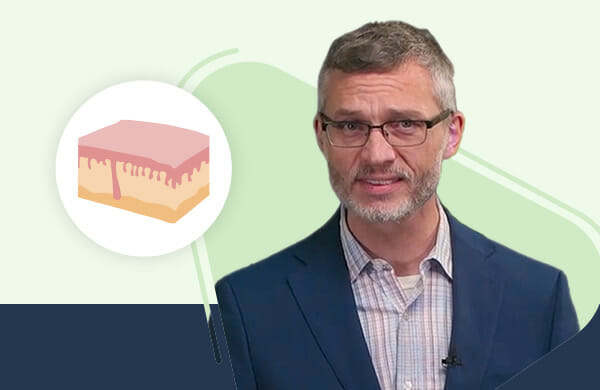Interview: Is it Hard to Become a Dermatologist?
Q: Hi Jeremy! How was the medical school experience for you?
A: Despite what you may have heard regarding the difficulty of medical school, I thought it was a blast and was four of the best years of my life. I went to Quillen College of Medicine at East Tennessee State University, which is a fairly small school in the Appalachian Mountains. The family atmosphere helped me make some great friends that pushed me to be successful. Yes, some parts of medical school are intense, but you’re finally getting the opportunity to focus on your goal of becoming a physician. As long as you can be disciplined with your time management, being successful in medical school is a very attainable goal.
Q: Why did you decide on your specialty–did you always know, or did something push you in this direction?
A: I was late to the party of dermatology. On our first day of medical school, our class wrote down on a note card the three specialties that we thought we would be least likely to go into. Funny enough, I wrote dermatology down as something I had no interest in. It’s hard to know what you want to do during the first two years of medical school, so it’s common to change your goals once you’re exposed to more fields.
I was planning to apply for internal medicine, and I took a dermatology elective as a third year with the hopes of having a better grasp of common skin conditions. I instantly fell in love with how visual the field of dermatology is.
With every other specialty, you are searching for the cause of a patient’s symptoms; but in dermatology, the patient can point exactly at what is bothering them.
As a visual learner, the visual nature of dermatology was very appealing to me. Dermatologists also have the ability to do numerous outpatient surgical procedures, and the combination of visual diagnosis with hands-on procedures sealed the deal for me.
Q: What does a typical day look like for you?
A: The classic stereotype is that dermatologists have it too easy, but I can assure you that completing a dermatology residency is no joke. We are primarily an outpatient specialty, but we also see some of the sickest patients in the hospital through our inpatient consult service.
On a typical day, I get to our office around 7 AM to study and attend didactics before we start seeing patients around 8. Our clinics have a high patient volume, so we usually see patients from 8 to around 5. With how busy we are, lunch is usually at our workstation while we catch up on patient notes from the morning.
Apart from clinical responsibilities, dermatology residents have a LOT to learn. Medical school only scratches the surface of what a dermatologist needs to know, so I usually spend around 10 hours a week reading from our primary textbook in addition to our clinical responsibilities.
Q: What’s the best or most interesting part of being a dermatologist? What’s the most challenging?
A: My favorite part about being a dermatologist is being able to cure or remove something that is harmful to the patient. Specifically, nothing beats being able to excise a skin cancer in clinic and then send the patient home cancer free.
A lot of medicine is delayed gratification, but we are frequently able to solve a patient’s problem the very day that we meet them.
The most challenging part is keeping up with the rapid development of new treatments. It seems like every time you watch TV, they are advertising a new psoriasis medication. Your current knowledge base may be enough today, but it won’t be enough tomorrow. I am sure this is true with every specialty, but it seems to be especially true with dermatology.
Q: Tell me something unique about your field! Any crazy stories?
A: I think what caught me the most off guard is how we do all our procedures with patients awake. Obviously, we numb the area that we are working on, but the patients are always awake, carrying on conversations with us as we work. This can lead to some interesting experiences when we’re doing large surgeries on the face. I can’t think of a specific example, but there have been numerous times where a rotating student or new resident may say “oops” while helping with a surgery on the face. It’s almost always over something insignificant, but the patients always seem to love hearing “oops” when we’re sewing around their eyes.
Q: What advice do you have for students deciding on their specialties?
A: The best advice I can give is to give 100% effort for every rotation and keep an open mind. You will likely change your mind over and over again, and that’s OK. If you always give your best effort, you keep all of your options open so that you will be successful when you find the right fit.

At a Glance: What Do Dermatologists Do?
How long does it take to become a dermatologist?
The total time it will take to become a dermatologist is close to 12 years. The detailed breakdown includes 4 years pursuing a bachelor, 4 years in medical school, a one-year internship and at least 3 years in residency. The time in residency could be extended if you pursue fellowship training. (American Academy of Dermatology Association)
What do dermatologists do?
- Dermatologist diagnose, treat and prevent diseases of the skin, hair, and nails. Patients may see a dermatologist for a minor skin rash, skin cancer, or even select sexually transmitted diseases. (American Academy of Dermatology Association)
- Dermatologists specialize and study different conditions such as hair loss, shingles, and eczema. They can also prescribe and perform different procedure such as chemical peels, laser surgery, and skin grafts. (Medical News Today)
- Some examples of types of dermatology include: (American Academy of Dermatology Association)
- Mohs surgeons: a dermatologist who performs Mohs surgery, otherwise known as a surgery which can treat skin cancer
- Pediatric dermatologist: a dermatologist who treats and prevents the usual medical issues with skin, hair, or nails but primarily only treats children
How much does a dermatologist make?
According to indeed.com, dermatologists make around 250,000$, but salaries vary between states. Salary.com names 355,100$ as a median.
What is the dermatologist lifestyle like?
- Compared to other medical specialities, dermatologist report being happier overall. The burnout rate for a dermatologist is average compared to other medical specialities, but has a slightly higher negative impact on their lives. Most burnout can be traced back to the increasing number of bureaucratic tasks. (Medscape)
- The two largest workplace issues for dermatologist include work/life balance and pay. (Medscape)
How many hours do dermatologists work?
On average, dermatologists have a 45.5 hour work week. (NY Times).



